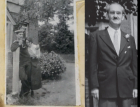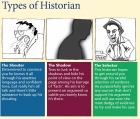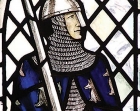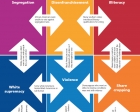Historical Argument
One of the most widely shared misconceptions among young people is that there can be one ‘true’ story of the past and that the value of any given interpretation depends on how closely it approximates to this ideal account. Enabling students to recognise that what historians are actually doing when they write about the past is advancing a series of claims – presenting and defending an argument – will help them not only in handling different interpretations but also in improving their own writing. Read more
Sort by:
Date (Newest first) | Title A-Z
Show:
All |
Articles |
Podcasts |
Multipage Articles
-

Teaching Year 9 to argue like cultural historians
ArticleClick to view -

Teaching students to argue for themselves - KS3
ArticleClick to view -

The Harkness Method: achieving higher-order thinking with sixth-form
ArticleClick to view -

The Tudor Monarchy in crisis: using a historian's account to stretch the most able students in Year 8
ArticleClick to view -

The devil is the detail
ArticleClick to view -

The dialogic dimensions of knowing and understanding the Norman legacy in Chester
ArticleClick to view -

The knowledge illusion
ArticleClick to view -

The mechanics of history: interpretations and claim construction processes
ArticleClick to view -

Triumphs Show 159: teaching paragraph construction
ArticleClick to view -

Triumphs Show 164: interpretations at A Level
ArticleClick to view -

Using Google Docs to develop Year 9 pupils’ essay-writing skills
ArticleClick to view -

Using causation diagrams to help sixth-formers think about cause and effect
ArticleClick to view -

Using nominalisation to develop written causal arguments
ArticleClick to view -

What made your essay successful? I ‘T.A.C.K.L.E.D' the essay question!
ArticleClick to view -

What's your claim: Developing pupils' historical argument skills using asynchronous text based computer conferencing
ArticleClick to view -

Why does anyone do anything? Attempts to improve agentive explanations with Year 12
ArticleClick to view -

Year 7 use oral traditions to make claims about the rise and fall of the Inka empire
ArticleClick to view -

Year 9 use sources to explore contemporary meanings and understandings of appeasement
ArticleClick to view -

‘Its ultimate pattern was greater than its parts’
ArticleClick to view

